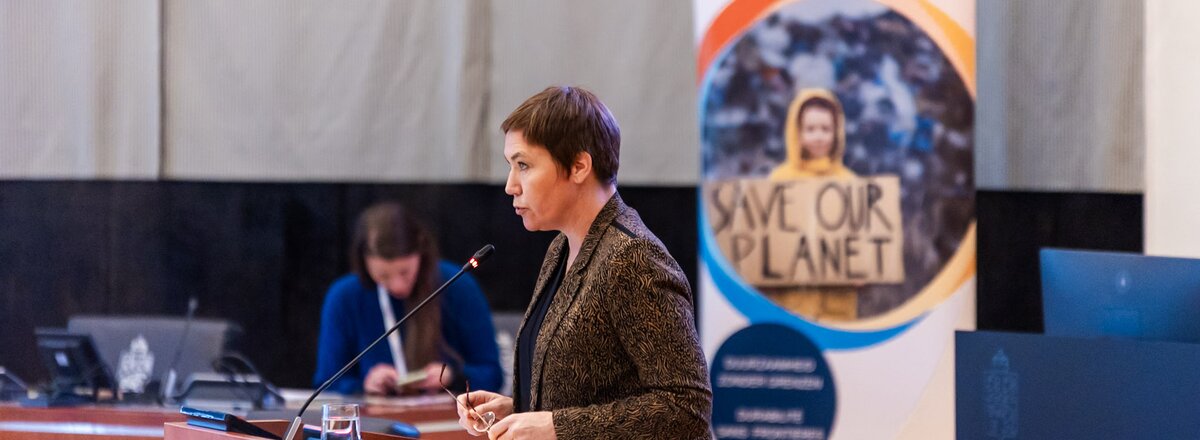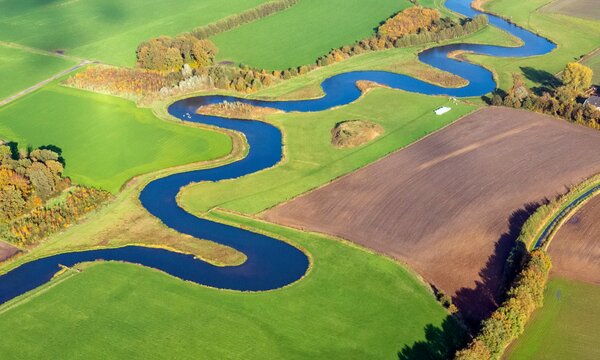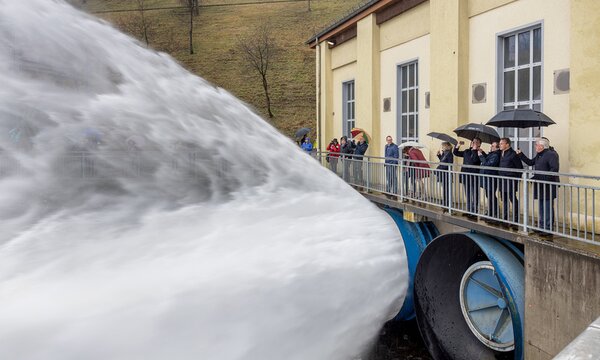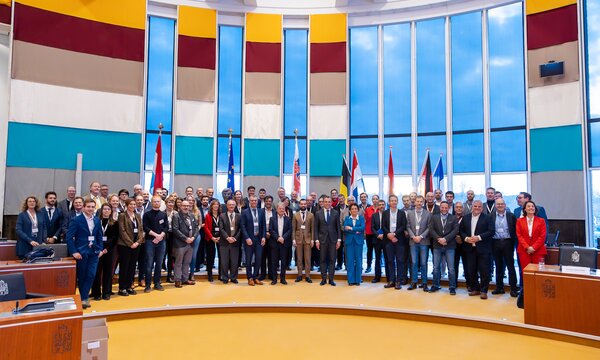In our latest magazine, we spoke to Bénédicte Heindrichs, Director General of the Walloon Public Service for Agriculture, Natural Resources and the Environment (SPW ARNE). We discussed the work of SPW ARNE and the importance of increased cooperation among public administration and water management experts on local and regional level. Find out about the importance of the SPW in Wallonia below in a preview of the interview.
Could you tell us a bit about yourself and the role of the SPW (Public Service of Wallonia)?
"My name is Bénédicte Heindrichs, and I have always been fascinated by the beauty of the world. That’s why I have always worked in the environmental field. Specifically, for the past four years, I have been the General Director within the Walloon public service, responsible for agriculture, environment, forestry, natural resources, nature, and animal welfare.
The SPW Agriculture, Natural Resources, and Environment ensures the preservation of Wallonia’s natural and rural heritage through a sustainable development approach aimed at securing quality resources essential for life for future generations. Concretely, it oversees and controls the management of natural resources: air, land, water, subsoil, fauna, and flora, whose biodiversity it protects. It plays a key role in the prevention, monitoring, and protection of the environment. With regards to water management, it manages non-navigable waterways and plays a crucial role in flood risk management and addressing important issues related to climate change."
The SPW has many responsibilities in Wallonia. Among these missions, which ones relate to the themes covered by JCAR ATRACE (floods, droughts, land planning, emergency situations, etc.)?
"The SPW ARNE that I lead is directly involved in the various themes covered by the JCAR ATRACE project. Indeed, one of my services is responsible for managing part of Wallonia’s hydrographic network's non-navigable waterways, specifically those classified as first-category non-navigable waterways under Walloon regulations. These represent no less than 1,900 km of the linear total of Wallonia's rivers and streams. We are, therefore, significant players in the implementation and coordination of flood risk management plans (PGRI).
We have also implemented river action programs (PARIS: Action Program on Rivers through an Integrated and Sectorized Approach) where we have defined integrated management objectives for each river sector, considering interconnected issues: hydraulic, economic, but also ecological and cultural.
My Directorate-General is not responsible for land planning. However, we remain an essential stakeholder, as we are called upon to provide opinions on land planning and urban development projects. We are also involved in several initiatives alongside our SPW TLPE colleagues, such as participating in project monitoring committees like the “Vesdre” master plan.
While emergency management, such as flooding or forest fires, falls under rescue services (civil security, fire department, medical services, police, national defense, etc.), we can participate and provide our expertise in the areas we manage. We have developed an internal procedure that can apply to any situation we might face in the course of our duties, regardless of whether it involves mobilizing emergency services. This general procedure can be supplemented by specific procedures handled by a department, such as an emergency waste management plan following a major event (flood, earthquake, etc.) or an action plan following accidental pollution."
Interested in the rest of the interview? Read the full interview in our magazine.



